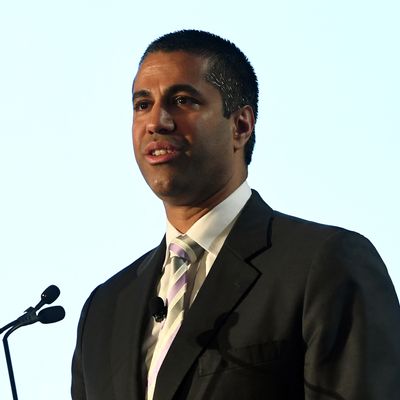
Among the many fragile regulatory frameworks being attacked with sledgehammers by the Trump administration is “net neutrality,” a very important issue that will dictate how the internet evolves (or doesn’t) for years to come.
The problem, though, is that net neutrality is very tough to sell as important to people, because it is one of the most boring topics in the world. I’m only being slightly hyperbolic. Part of this is inherent to the issue itself. It’s not a particularly sexy thing to talk about; it also doesn’t directly help or protect vulnerable people or services. At its core, net neutrality is about regulating a lower layer of the internet (service providers like the cable company) so that the layer above them (the websites and services you use every day) can be administrated equally. You can say “level playing field” and “free speech” all you want, but at its core, net neutrality is an issue about the regulation of infrastructure and utilities, and it’s hard to get people to care.
Part of it, though, is the phrase itself. Here at Select All, we’ve tried to avoid using “net neutrality” in headlines this year because it is a boring-ass phrase. I can feel your eyes glazing over. Nothing gets clicks like the concept of “neutrality.” Instead of saying “net neutrality,” advocates — Select All included — have started referring to this policy debate as a fight to preserve the “free and open internet.” It’s catchy! Who would disagree with a free and open internet?
In fact, the rhetoric is so catchy, as the Daily Dot points out, that FCC chairman Ajit Pai has adopted it to argue against net neutrality. Last week, in his speech, laughably titled “Restoring Internet Freedom,” Pai said (emphasis added):
Throughout the discussion that is to come, you will hear from the other side that Title II regulation is the only way to preserve a free and open Internet. This is a lie. They will repeat it over and over again, but it’s just not true. And you don’t have to be a regulator or a lawyer to figure that out. You just need to have a memory. For decades before 2015, we had a free and open Internet. Indeed, the free and open Internet developed and flourished under light-touch regulation.
Pai is advocating for the freedom of the true oppressed class: telecom monopolies.
The Outline argues that net neutrality needs better branding — a catchier slogan! A fun, anagrammatic bill name for congressional debate! While this seems like a promising start, I think a new name for a boring issue is likely to get the stench of boredom attached to it, too. What’s more important is making clear to people the direct stake they have in this issue. On net neutrality, this is easy: net neutrality is a fight over whether your cable company gets to screw you. That’s the one sentence you need to remember. If you support net neutrality, you want to prevent cable companies from screwing over their customers by slowing down certain websites. If you support the FCC rolling back Title II regulations, you support the ability of cable companies to slow down the websites you love to visit.
I’ll recap just one more time, so that it really sticks.
For net neutrality: I do not want my cable company to screw me.
Against net neutrality: I love being exploited by my cable company.
It’s simple and catchy, and places at the center of the net neutrality debate one of the most hated groups in the country: Cable companies. Supporting net neutrality means that you don’t want to get screwed by your cable company. No more headlines that say stuff like, “The debate over net neutrality.” It is now, “The debate over whether cable companies should be allowed to fuck their customers.” Glad we cleared this up.





























